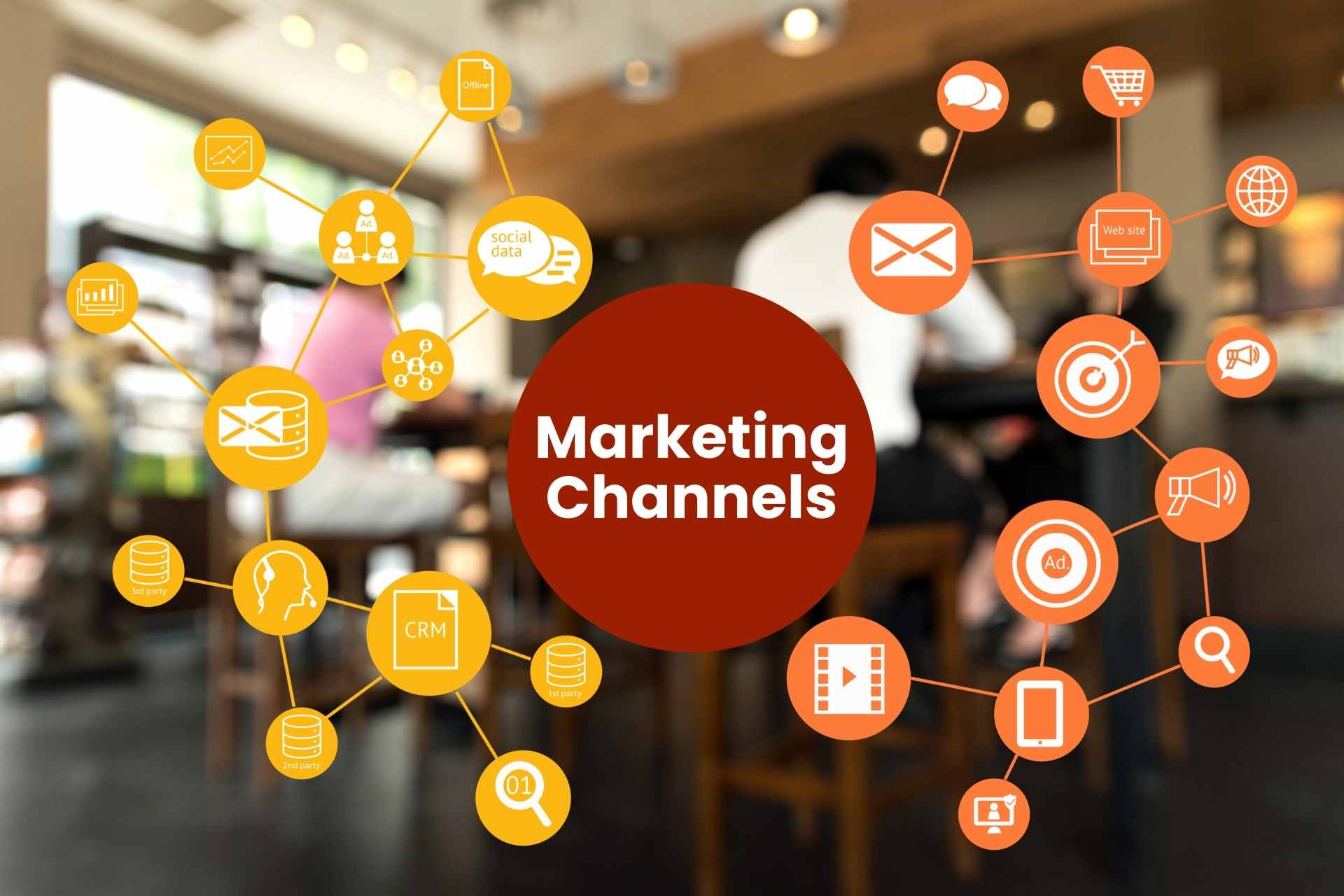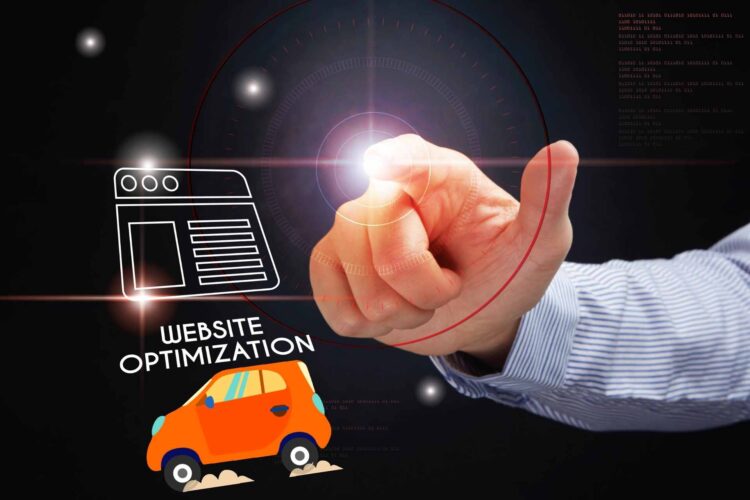
Table of contents:
- Brief Overview of Omni-channel Marketing
- Importance for Dealerships in Today’s Digital Age
- Comprehending the Customer Experience
- Building a Unified Brand Experience
- Leveraging Digital Channels
- Enhancing In-Person Interactions
- Utilizing Data and Analytics
- Mobile Optimization
- Incorporating Cutting-Edge Technologies
- Creating a plan for content marketing
- Implementing CRM Systems
- Challenges and Solutions in Omni-channel Marketing
- Future Trends in Omni-channel Marketing for Dealerships
- Conclusion and Next Steps
Omni-channel marketing is no longer a trend but a necessity for dealerships aiming to thrive in the modern, digitally-driven marketplace. As buying behaviors shift and consumer expectations rise, dealerships must adapt by creating seamless shopping experiences across all channels. This comprehensive guide delves into the strategies that will enable your dealership to connect with customers at every stage of their journey, from initial research to final purchase.
Brief Overview of Omni-channel Marketing
Omni-channel marketing involves integrating and coordinating various marketing channels to provide a consistent and personalized customer experience. Regardless of how a customer engages with your brand – be it online, on social media, through email, or in person – the experience should be consistent and seamless.
Importance for Dealerships in Today’s Digital Age
For car dealerships, adopting an omnichannel approach is crucial for staying competitive. Customers today expect the ability to transition smoothly between online research and in-store visits without any disruption in communication or service quality. This plan enhances customer satisfaction as well as loyalty and sales conversions.
Comprehending the Customer Experience
Charting the Path of the Automotive Buyer
The buyer’s journey in the automotive industry typically starts long before a potential customer steps into a showroom. It begins online with research, comparisons, and reading reviews. Understanding this journey allows dealerships to craft targeted strategies at each phase.
Identifying Touchpoints for Engagement
Each customer interaction with your brand can affect their decision to buy. Identifying these touchpoints is essential for crafting messages that resonate and motivate customers to move further along the buyer’s path.
Building a Unified Brand Experience
Ensuring Consistent Messaging Across Platforms
Consistency is key in omni-channel marketing. Your brand’s message should be coherent whether it appears on your website, social media, email blasts, or physical advertisements. Consistency is key in solidifying your brand image and in establishing trust with your clients.
Brand Image and Values Alignment in Every Channel
Aligning your brand image and values across every channel reinforces your dealership’s identity and ensures that customers have a predictable and reliable experience with your brand, reinforcing trust and loyalty.
Leveraging Digital Channels
Website Optimization for User Experience
A well-optimized website serves as the backbone of digital marketing efforts. It should be fast, mobile-friendly, and easy to navigate to provide the best user experience and encourage longer visits, which can lead to increased sales.
Strategies for Building Community and Engaging on Social Media
Social media isn’t just for posting vehicle photos—it’s a powerful tool for engaging directly with your audience, providing customer service, and building a community around your brand.
Email marketing for customized communication
Email marketing continues to be an effective tool for communicating on a personal level. Segmenting your email list allows for personalized messages that cater to the interests and needs of different customer groups, enhancing engagement and retention.
Enhancing In-Person Interactions
Integrating Online Insights for Better Showroom Visits
Data collected from online interactions can be used to enhance the in-person experience. Knowing a customer’s preferences and history allows sales staff to provide more personalized service, potentially speeding up the sales process.
Training Staff for Seamless Online-to-Offline Transitions
Staff training is vital to ensure that the seamless experience promised online is delivered in person. Salespeople should be knowledgeable about digital tools and strategies to better serve tech-savvy customers.
Utilizing Data and Analytics
Collecting and Analyzing Data for Targeted Marketing
Successful omni-channel marketing depends on data to comprehend customer behaviors, preferences, and trends. This data can be utilized to customize marketing tactics and enhance customer engagement on all platforms.
Using Feedback for Continuous Improvement
Customer feedback, whether positive or negative, provides invaluable insights into what works and what doesn’t. This ongoing input is essential for continuous improvement in your marketing strategies.
Mobile Optimization
Importance of Mobile-friendly Interfaces
With an increasing number of customers using smartphones for research and purchases, having a mobile-optimized interface is crucial for engaging this growing segment of the market.
Mobile Apps and Features for Enhanced Customer Support
Developing a mobile app can provide customers with a convenient tool for browsing inventory, scheduling service appointments, and communicating with customer service.
Incorporating Cutting-Edge Technologies
Immersive Experiences through Virtual Reality (VR) and Augmented Reality (AR)
Implementing VR and AR can transform the customer experience, allowing them to virtually test drive vehicles or explore features from the comfort of their homes.
24/7 Customer Service Provided by AI Chatbots
AI-driven chatbots can offer immediate answers to customer questions 24/7, enhancing interaction and contentment.
Creating a plan for content marketing
Producing valuable content tailored to each step of the buyer’s process
Content marketing should address the needs and questions of customers at every stage of their journey, from awareness to decision-making, with relevant and engaging content.
Video Marketing for Engaging and Informative Storytelling
Videos are an effective tool for captivating audiences, whether through vehicle walkarounds, feature explanations, or customer testimonials.
Implementing CRM Systems
Tracking Customer Interactions for Personalized Marketing
A reliable Customer Relationship Management (CRM) system allows you to monitor all customer interactions at your dealership, gathering information that can be utilized to customize future communication and promotions.
Enhancing Customer Relationship Management Through Technology
Advanced CRM systems integrate with other tools to provide a comprehensive view of customer interactions across all channels, improving the effectiveness of marketing campaigns and customer service.
Challenges and Solutions in Omni-channel Marketing
Common Hurdles in Integrating Multiple Channels
Integrating multiple marketing channels presents various challenges, including data silos and inconsistent messaging.
Strategies to Overcome These Challenges
Solutions include investing in technology that integrates various marketing tools and focusing on a consistent brand message across all platforms.
Future Trends in Omni-channel Marketing for Dealerships
Predictions for the Evolution of Customer Engagement
The future of omni-channel marketing will likely involve even more personalized and technologically advanced interactions.
Emerging Technologies and Their Potential Impact
Technologies such as AI, machine learning, and blockchain could further revolutionize how dealerships interact with customers.
Conclusion and Next Steps
To embark on your omnichannel marketing journey, begin by assessing your current strategies and identifying gaps in your customer engagement. Implementing the strategies mentioned will not just improve customer happiness but also boost sales and encourage loyalty.
Do you have additional inquiries regarding marketing for car dealerships? Visit our blog section for further information. Contact our support team via email at marketing@goautomotivemarketing or call 1 (470) 791-9755 to clarify your doubts. The GoAutomotive Marketing Expert Support Team is happy to help you.



